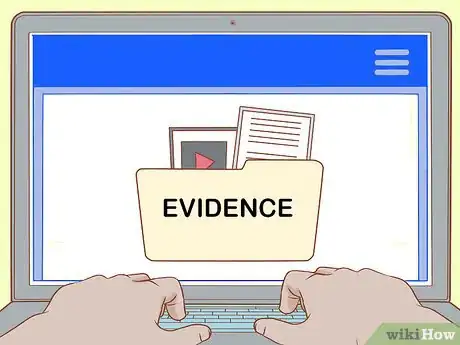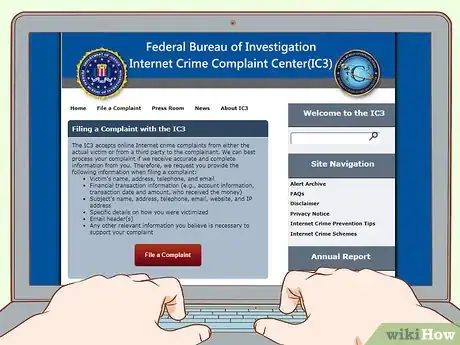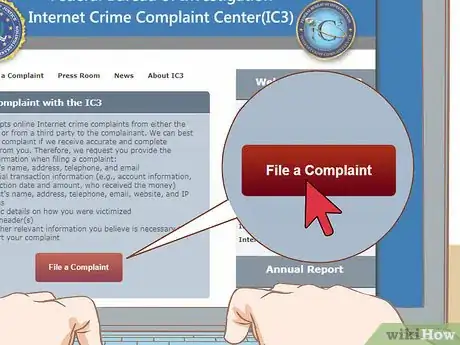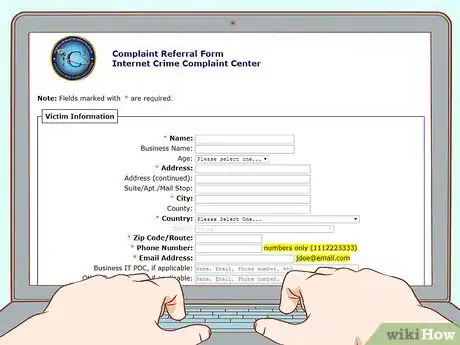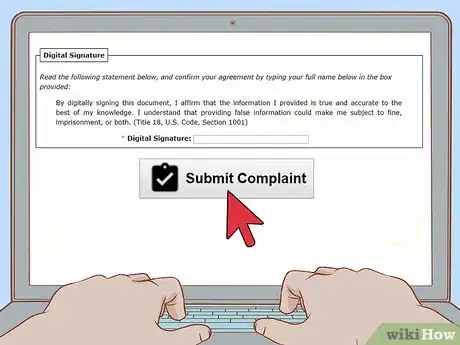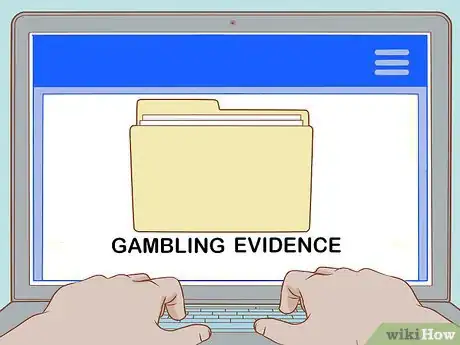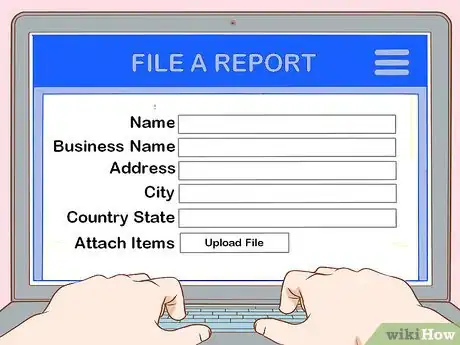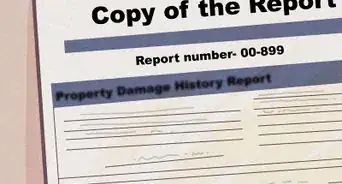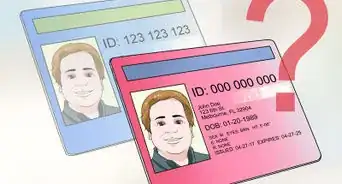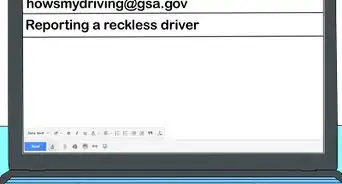This article was written by Jennifer Mueller, JD. Jennifer Mueller is an in-house legal expert at wikiHow. Jennifer reviews, fact-checks, and evaluates wikiHow's legal content to ensure thoroughness and accuracy. She received her JD from Indiana University Maurer School of Law in 2006.
There are 8 references cited in this article, which can be found at the bottom of the page.
This article has been viewed 92,087 times.
For the most part, gambling is regulated by state law, so whether a particular instance of gambling activity is illegal depends on the law in your state. However, online gambling is illegal throughout the country under federal law. You can report online gambling to the FBI. Live gambling that violates state law should be reported to the appropriate state authority – typically a gaming commission or illegal gambling task force within state law enforcement.[1]
Steps
Reporting Online Gambling
-
1Collect information about the activity. Before you begin the process of filing an online complaint with the FBI, pull together any copies of evidence you may have about the online gambling operation, as well as other information you may have.[2] [3]
- Keep in mind that the more information and detail you provide, the more likely it will be that the FBI will be successful in bringing down the illegal operation and bringing the perpetrators to justice.
- However, don't hold off reporting an operation just because you don't have very much information. Even if all you have is the domain name of the website, it's information the FBI can use to investigate the activity.
- If you happen to have any documents or other evidence, such as screen captures, you also will have the ability to submit them along with your complaint.
- You don't have to be a victim to file a complaint with the FBI. The agency accepts complaints from any concerned citizen who wants to sound the alert about illegal gambling activity online.
-
2Visit the FBI's Internet Crime Complaint Center (IC3). The IC3 is run by the FBI, and collects information on internet crime submitted by private individuals. These reports are analyzed by the FBI and disseminated to other federal, state, or local law enforcement agencies where appropriate.[4] [5]
- For example, if the website that hosts illegal gambling happens to be operated out of a particular state, the FBI will forward information to that state's gaming commission to investigate and shut down the operation.
- Even if the gambling activity itself is primarily occurring in a physical location, you still can use the IC3 website to report the activity if it has an online component.
Advertisement -
3Click the complaint link. On the IC3 home page, there is a link to the online complaint form. Once you click it you will have to agree to the terms and conditions and accept the privacy policy before you can proceed filling out the form.[6]
- Your information is kept secure, and your name and contact information remain confidential. However, you may be contacted by law enforcement officials looking for additional information about the operation described in your complaint.
- Keep in mind that any information you submit must be true and correct to the best of your knowledge. Knowingly and intentionally providing false information could lead to fines and jail time.
-
4Enter your information. You cannot submit an anonymous complaint on IC3. You must provide your own name and contact information, as well as factual details about the illegal gambling operation you want to report.[7]
- Accurate name and contact information ensures investigators can reach you if they have further questions or need more details about the activity.
- Include as many details as you can, without making any judgment calls yourself as to whether a particular fact is important.
- Keep in mind that something that seems inconsequential to you may unlock a pattern that connects this operation to other illegal gambling.
-
5Submit your complaint. Once you've reviewed the information you provided and are satisfied that it is complete and accurate, you can click the "submit" button to enter your complaint for evaluation with the IC3.[8]
- You will have the opportunity to download or print a copy of your complaint for your own records.
- IC3 will send you an email confirming receipt of your complaint and assigning you a user name and password. You can log in to IC3 with that information to review the status of your complaint at any time.
- Keep in mind that while IC3 forwards your complaint to the appropriate law enforcement agencies, they all have discretion on whether to pursue an investigation or follow up on your complaint.
- Once your complaint is submitted, it can't be deleted or withdrawn. However, you can add information to it if you learn anything new about the operation that was the subject of your report.
Reporting to State Law Enforcement
-
1Locate the appropriate law enforcement agency. Although you can always file a report at your local police station, each state has a specific department or task force that deals exclusively with illegal gambling.[9] [10] [11]
- To find the right law enforcement agency, try searching the internet for the name of your state and "gambling" or "gaming." The two words typically mean the same thing legally, and may be used interchangeably.
- Your state may have separate boards or commissions for issuing licenses than for investigating illegal gambling activity. Once you find a related website, you may have to poke around a bit to make sure you've got the one you need.
- If the activity itself is legal, but requires a license, you would need to file your report with the licensing board. However, gambling activity that violates state law should be reported to law enforcement.
-
2Gather information about the activity. Before you file your report, you want to have as many factual details as you can to provide to law enforcement so they have something to go on when investigating the crime.[12] [13]
- You should be able to describe the type of activity taking place. You may want to check your state's law to make sure the activity you've observed violates state law.
- Record the dates and times the activity took place according to your observations, or the date and time you first observed it if it is a continuously ongoing activity, such as the presence of a slot machine in an unlicensed location.
- You also want as much information as possible about the people involved, including names and physical descriptions. #Decide whether you want to remain anonymous. Many states allow you to report illegal gambling without revealing your own identity. However, remaining anonymous may limit your options and your ability to follow up on your report.[14]
- Typically if you submit an anonymous report, you're limited to calling a hotline. By doing so, you have no way of knowing if the agency follows up on your tip and you can't provide additional information efficiently.
- Keep in mind that when you include your name and contact information, it will be treated confidentially and won't be disclosed, except to law enforcement agents or officials who need to contact you directly about your report.
- Including your name and contact information typically allows you to check up on the status of your report or easily add to it if you acquire additional information. You may even be eligible for a reward if an operation is shut down and people are convicted of conducting illegal gambling activity.
-
3File your report. When you're ready, contact the law enforcement agency you've chosen and provide the information necessary to complete and file a report about the illegal gambling you've witnessed. If you include your name and contact information, you may be contacted by an officer.[15]
- If you're concerned about the threat of possible violence, you may want to consider going to your local police department and filing your report in person.
- Before you report operations in which you were involved, you probably should consider talking to an experienced criminal defense attorney. He or she may be able to assist you in gaining immunity in exchange for your informant and testimony, but you risk prosecution if you go in alone.
References
- ↑ http://www.criminaldefenselawyer.com/crime-penalties/federal/Illegal-Gambling.htm
- ↑ https://www.ic3.gov/Home/FAQ
- ↑ https://vegasinc.lasvegassun.com/business/gaming/2015/nov/11/gaming-association-fbi-ask-the-public-to-report-il/
- ↑ https://www.ic3.gov/Home/FAQ
- ↑ https://vegasinc.lasvegassun.com/business/gaming/2015/nov/11/gaming-association-fbi-ask-the-public-to-report-il/
- ↑ http://www.ic3.gov/complaint/default.aspx
- ↑ http://www.ic3.gov/complaint/default.aspx?
- ↑ https://www.ic3.gov/Home/FAQ
- ↑ https://www.michigan.gov/mgcb/0,1607,7-120-55652---,00.html
- ↑ http://www.tax.alaska.gov/programs/programs/help/faq/faq.aspx?54160
- ↑ http://www.cgcc.ca.gov/?pageID=complaints
- ↑ https://www.michigan.gov/mgcb/0,1607,7-120-55652---,00.html
- ↑ http://www.criminaldefenselawyer.com/crime-penalties/federal/Illegal-Gambling.htm
- ↑ https://www.michigan.gov/mgcb/0,1607,7-120-55652---,00.html
- ↑ https://www.michigan.gov/mgcb/0,1607,7-120-55652---,00.html
